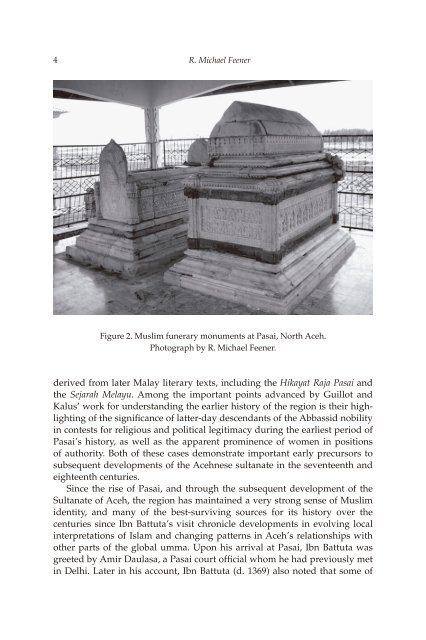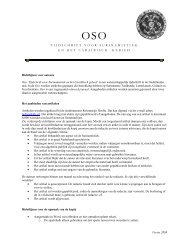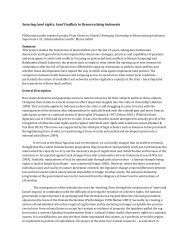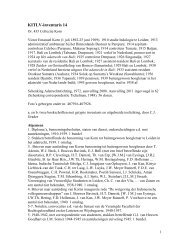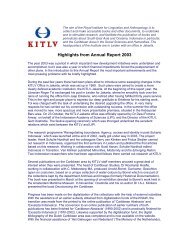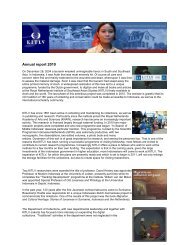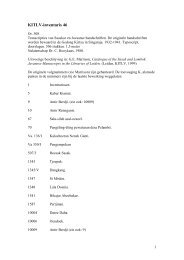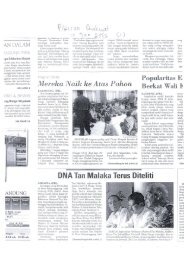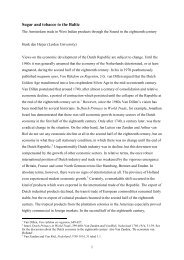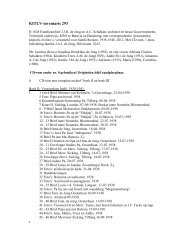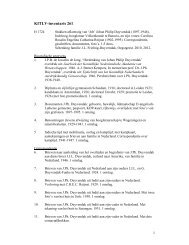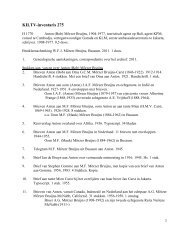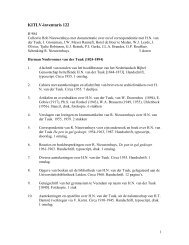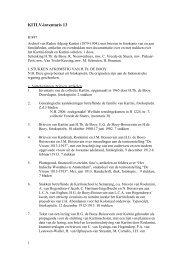The Acehnese past and its present state of study R. Michael ... - kitlv
The Acehnese past and its present state of study R. Michael ... - kitlv
The Acehnese past and its present state of study R. Michael ... - kitlv
You also want an ePaper? Increase the reach of your titles
YUMPU automatically turns print PDFs into web optimized ePapers that Google loves.
4 R. <strong>Michael</strong> Feener<br />
Figure 2. Muslim funerary monuments at Pasai, North Aceh.<br />
Photograph by R. <strong>Michael</strong> Feener.<br />
derived from later Malay literary texts, including the Hikayat Raja Pasai <strong>and</strong><br />
the Sejarah Melayu. Among the important points advanced by Guillot <strong>and</strong><br />
Kalus’ work for underst<strong>and</strong>ing the earlier history <strong>of</strong> the region is their highlighting<br />
<strong>of</strong> the signifi cance <strong>of</strong> latter-day descendants <strong>of</strong> the Abbassid nobility<br />
in contests for religious <strong>and</strong> political legitimacy during the earliest period <strong>of</strong><br />
Pasai’s history, as well as the apparent prominence <strong>of</strong> women in positions<br />
<strong>of</strong> authority. Both <strong>of</strong> these cases demonstrate important early precursors to<br />
subsequent developments <strong>of</strong> the <strong>Acehnese</strong> sultanate in the seventeenth <strong>and</strong><br />
eighteenth centuries.<br />
Since the rise <strong>of</strong> Pasai, <strong>and</strong> through the subsequent development <strong>of</strong> the<br />
Sultanate <strong>of</strong> Aceh, the region has maintained a very strong sense <strong>of</strong> Muslim<br />
identity, <strong>and</strong> many <strong>of</strong> the best-surviving sources for <strong>its</strong> history over the<br />
centuries since Ibn Battuta’s visit chronicle developments in evolving local<br />
interpretations <strong>of</strong> Islam <strong>and</strong> changing patterns in Aceh’s relationships with<br />
other parts <strong>of</strong> the global umma. Upon his arrival at Pasai, Ibn Battuta was<br />
greeted by Amir Daulasa, a Pasai court <strong>of</strong>fi cial whom he had previously met<br />
in Delhi. Later in his account, Ibn Battuta (d. 1369) also noted that some <strong>of</strong>


